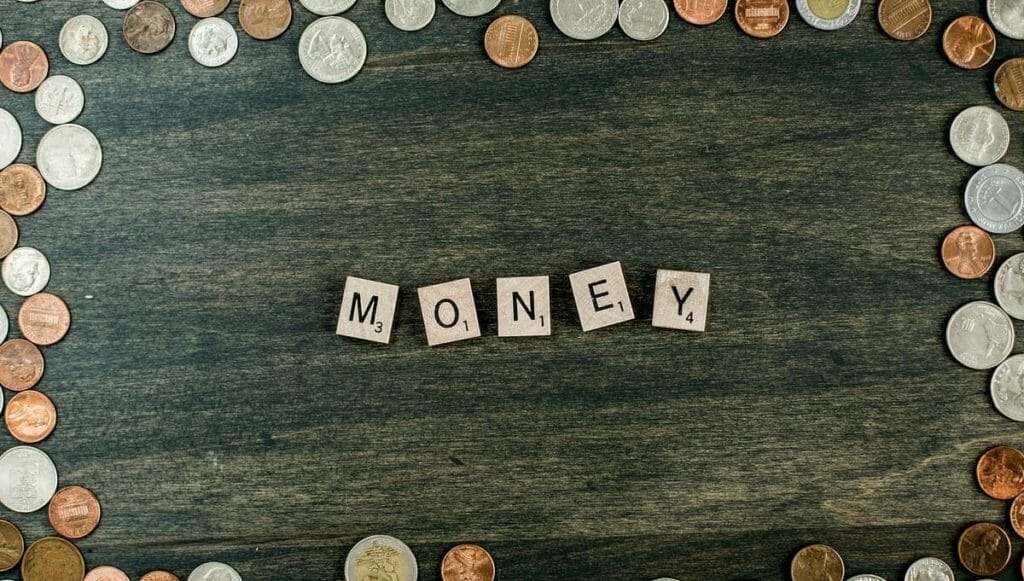What Are Closing Costs?
Purchasing a home is a euphoric event, but that can change to frustration, particularly if you are not ready for the closing costs.
Closing costs simply refer to the fees & costs associated with various things associated with the escrow process in the real estate transaction. You can get caught up in the excitement of having an offer accepted for your dream home, but don’t lose track of the fact you are going to need some extra cash on hand for the fees and other costs.
A lot of people will make the mistake of only assuming they need the down payment. This will leave you rushing around trying to come up with the money for the closing fees and could cost you your dream house if you’re not prepared.

Getting Your Financial House in Order
But that’s not you! Because you’re getting prepared. Before we go into the different costs you should expect, it is recommended that you go through a number of steps to get your finances in order.
- Review Credit Report
- Cut Down Credit Card Balances
- Reign In Unnecessary Spending
- Prepare for an Earnest Money deposit
- Set a monthly budget (STICK TO IT! It won’t be easy but you’ll thank yourself in the end.)
Now that we’ve gone through what you can do to start budgeting for your closing costs, let’s go over the different closing costs you should be aware of.
Budgeting For a Home Inspection
If you are buying a home, make sure to get it inspected by an expert. Routine inspections can help uncover problems that would otherwise go unnoticed like water leaks and rot–problems that could lead to costly repairs down the line if they arenít fixed now!
The cost for home inspections will vary depending on different factors like the size of the property, and the different testing services you chose to have done. These are services can include a Wood Destroying Organism (WDO) inspection, or Water Quality Testing. The home inspector you chose also will factor into the cost. That is because, just like every other service-based field, you get what you pay for.
At Tier-1 Pro Inspections we believe in upfront and fair pricing – Our average home inspection is $320 – $450 – Depending on the services requested.
You can learn more about our home inspection services here.

Title Insurance
Title insurance is an essential part of the home buying process. Titles are researched by a company, and if they find any issues with your potential purchase then these will be resolved before closing on the property – making for smoother transitions at every step.
Title Insurers help buyers protect themselves from complications when purchasing properties by verifying that there aren’t any liens or other legal matters in play that could prompt delays during negotiations between seller/buyer; this ensures smooth sailing throughout escrow!
While the cost of title insurance with change based on the price of the home and some other factors, according to Realtor.com (Hyperlink: https://www.realtor.com/advice/buy/how-much-does-title-insurance-cost/) “The average cost of title insurance is around $1,000 per policy”
Property Taxes
Being required to pay property taxes can be a nasty little surprise. After all, you do not even own the home yet! The requirement, however, comes because of the nature of how property taxes are paid. They are not paid every month, so the seller has prepaid the taxes beyond the period they will own the home. They will want that money back! You can negotiate this point as part of the purchase, but you need to be aware it is out there.
In some states, it is a legal requirement that you have a lawyer represent you in a real estate transaction. This requirement primarily exists in the East. Regardless, attorneys are expensive and you need to have money set aside to pay their fees. In truth, retaining a lawyer is a good idea since they tend to sniff out any questionable issues in the transaction. Fees can run you a couple hundred dollars.
What About Prepaid Loan Interest?
Prepaid loan interest is an ugly little surprise for many first time homebuyers. The lender will often require you to pay the interest that accumulates between the day the loan is funded and the day you are actually scheduled to make your first loan payment. Many people mistakenly believe they have roughly a month before they have to start paying. This is rarely the case, and the sudden requirement to pay hundreds or thousands of dollars can be a nightmare. If at all possible, you should try to get the lender to fund the loan as close as possible to the actual closing date, even on it. Try to avoid closing the loan on a Monday. The lender will have to fund the loan the previous work week, which means interest will be growing.

Home Insurance Premiums
Homeowners insurance is something you are going to need and most people expect as much when buying a home. If you are not informed, however, you will be surprised at closing when you find out you have to pay the full premium for the first year of the policy. Depending on the value of your purchase, this can add a couple of hundred dollars to thousands of dollars onto your closing costs. Again, it is important to budget for this cost when putting funds together prior to purchasing a home. Learn more about Florida Home Insurance.
But Wait There's More! - Loan Origination Fees & Private Mortgage Insurance
Origination fees for home loans can be a shock to first-time buyers. Few realize they are going to have to pay such things. Origination fees are costs charged by a lender for services used to determine if the lender should give you a loan in the first place. For example, a lender will charge you fees for obtaining a copy of your credit report, having an appraisal done for the property. Infuriatingly, the lender will also charge you fees for processing the loan and preparing the loan documents. You may also have to pay points, which represent a percentage of the total loan, often one or two percent. On a $300,000 loan, the origination fees can quickly add up to thousands of dollars.
Private mortgage insurance, often called PMI, can also be a nasty little surprise. The magic number when considering PMI is 20 percent. If you make a down payment on the home that is less than this amount, you are almost certainly going to have to pay PMI. PMI is simply insurance that protects the lender should you default on the loan. The cost can add up to hundreds of dollars, so make sure you know what is expected of you.
Preparing For The Inevitable
So many of us have had the experience of feeling aggravated, even cheated, by closing costs. And it is easy to understand why when you think about all the different fees that are typically associated with a real estate transaction.
But what if I told you there was an easier way? You can avoid this aggravation altogether by budgeting for your closing costs upfront and including them in your down payment.
It’s not always possible but often enough so that you will feel less frustrated during this time in your life because at least then, money won’t be something new or unexpected on top of everything else going on. What do you think? Have these steps helped clear up any confusion around how much money you need to save up before buying a home?
More Content
- See what it means to be an International Certified Professional Inspector.
- Visit our Blog for even more information.
- Curious as to what the life expectancies of your home’s components are? Click here to find out!
